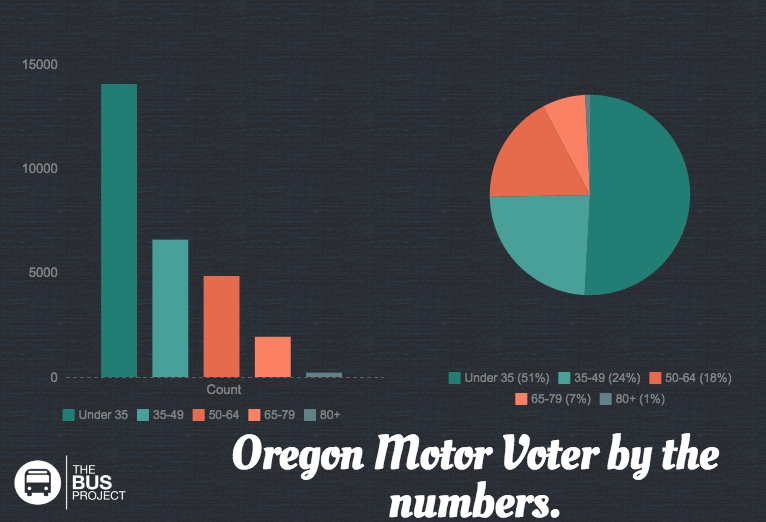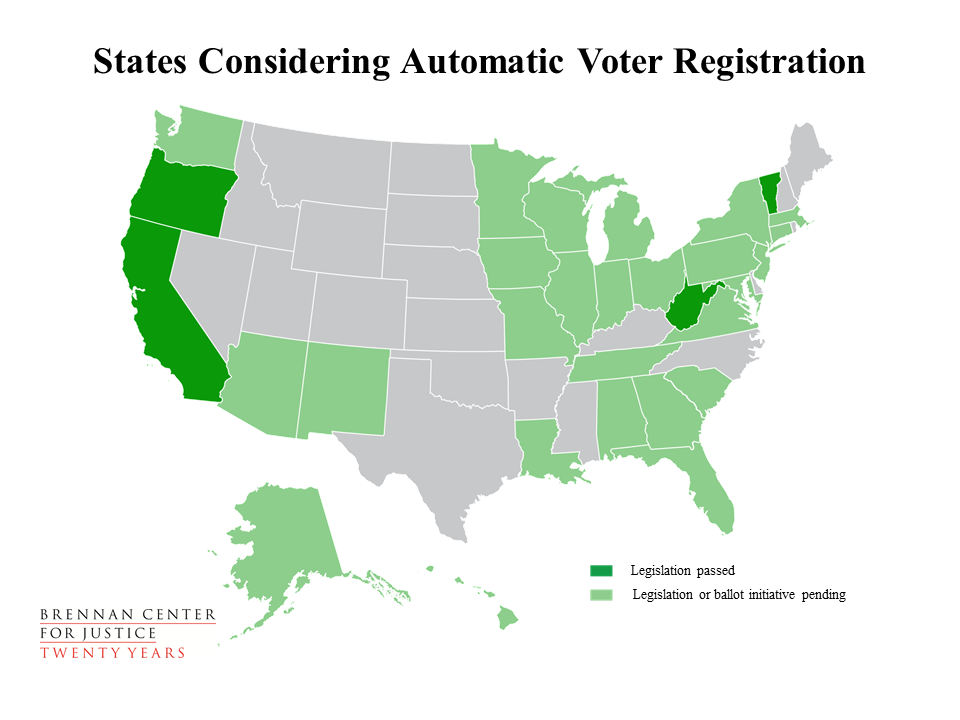Oregon’s presidential primary is tomorrow, but the bigger story is how many new voters there are in the state.
More than 100,000 new voters have registered so far in 2016, over half through the state’s new automatic voter registration system. The 51,558 voters signed up through automatic registration is an average of 12,889 new voters per month, three times higher than the average of 4,163 monthly registrants in 2012.
“It looks like it’s going to be a big success,” says Nikki Fisher, executive director of The Bus Project, which helped conceive of the program. The number of voters registered has been higher than initial projections and half of new registrants are under 35. “All indications are that new people are being brought into the system,” Fisher says.
This year Oregon became the first state to automatically register eligible citizens who request or renew a driver’s license through the DMV. They are sent a card informing them of their registration status and have 21 days to opt out from the voting rolls. The burden of registration shifts from the individual to the state. Only 6 percent of registrants have chosen to opt out, “a ratio of nearly 15 eligible citizens added to the voting rolls for every 1 person who declined,” reports Liz Kennedy of the Center for American Progress. (However, three-quarters of registrants declined to identify with a political party and unfortunately won’t be able to vote in tomorrow’s closed primaries.)
Oregon’s registration system should be a model for the rest of the country. Three other states—California, Vermont, and West Virginia—have passed automatic registration laws this year and 28 states are considering the reform, according to the Brennan Center for Justice.
Popular
"swipe left below to view more authors"Swipe →
“Oregon’s system is truly groundbreaking—and it offers a clear path forward for states looking to make their elections more accessible and convenient for voters. It costs less, increases the accuracy and security of our voter rolls, and curbs the potential for fraud,” writes Jonathan Brater of the Brennan Center.
Support is growing at the national level as well, notes the Brennan Center:
In February, President Barack Obama called on legislators to “make automatic voter registration the new norm across America.” In a campaign speech in June 2015, Hillary Rodham Clinton embraced automatic, universal voter registration for eligible citizens once they turn 18, and Senator Bernie Sanders introduced an automatic registration bill in Congress in August. Senator Sanders’ bill was the second automatic registration bill introduced in Congress this year; in June, Rep. David Cicilline and 45 cosponsors introduced legislation requiring automatic registration for federal elections at all DMVs.
Oregon is also leading the way on voting rights by adopting reforms like all-mail voting, online voter registration, and pre-registration for 17-year-olds. At a time when too many states are restricting voting rights, “we’ve been committed in Oregon to removing barriers to voting,” says Fisher.
It’s a national tragedy that a quarter of eligible Americans—51 million people—aren’t even registered to vote. Reports CAP:
Currently, 46 percent of eligible 18- to 24-year-olds are not registered to vote; 41 percent of eligible Latino citizens are not registered to vote; 44 percent of eligible Asian American citizens are not registered to vote; and 37 percent of eligible people with incomes less than $30,000 are not registered to vote.
Automatic registration can solve this problem. In California alone, 6 million new people could be added to the rolls when the state adopts the new registration system next year.
Beyond the numbers registered, automatic registration can reframe the debate over voting rights. Throughout American history we’ve frequently talked about the vote as a right but treated it far more as a privilege, excluding many from participating in the democratic process. As Liz Kennedy of CAP writes, “Automatic voter registration can transform voter registration from a barrier to democratic participation into its gateway.”




